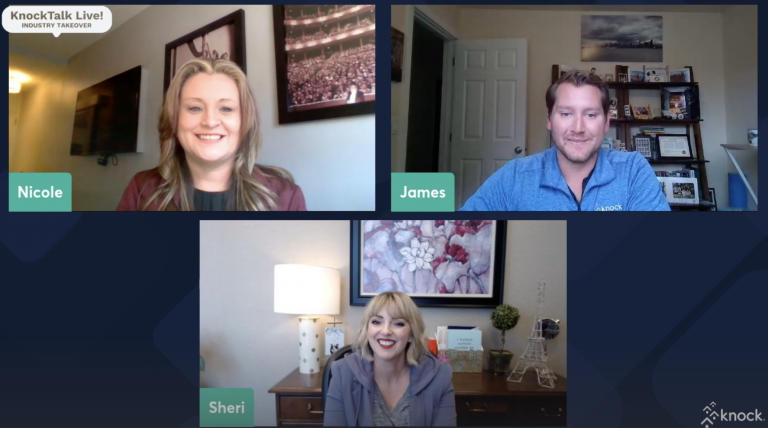4 steps to take now to prepare for a crisis: How proptech can help your emergency preparedness plan

You never know when a crisis will hit and how severely it will affect your day-to-day operations or your residents. You do know that today is as good a day as ever to strategize about your response.
I came to Knock with five years’ experience in the multifamily industry, also having gained a wealth of knowledge on how to deal with such hardship moments. I worked through Hurricane Harvey, the pandemic, and many localized crises.
We’ve all gone through crises and challenging situations that really beat us down and make us feel like we’re not producing or performing the way that we need to. This includes your frontline. And, a crisis of any size also can have an impact on your bottom line.
Going through situations like that really forces you to take a step back and figure out what can be done, and what can we control in the uncontrollable? What can we learn for the next situation?
What has helped me, my teams and Knock’s customers is a 4-step process I identified that helps to ensure your frontlines are meeting customer needs while still delivering value to the bottom line.
And when we talk about crisis management, it’s not just major pandemics. Things that we learned from these major crises can be tailored to small hurdles and bumps in the road.
Here are the four big call-outs that I’ve learned through crisis management: Prepare, Rally, Practice, Communicate.
1. Prepare
Prepare now. We don’t know what or when the next big crisis is going to be or what shape it will take.
Try to identify things that would really throw a wrench in the major functions that your corporate teams and onsite teams are trying to do in your day-to-day. In a crisis, we need to still do our job every day: What’s going to throw us a hard left?
For example, no one could have thought that one day we’d have to stop touring face-to-face. So, ask yourself, “Okay, if I couldn’t tour face-to-face anymore, what could I do? If I couldn’t call people anymore, what could I do?”
Let your imagination come up with other untold crisis realities and think about how you’d respond.
2. Rally
Rally your resources. Once you identify roadblocks or things that could stop you in your tracks or hinder you from doing your day-to-day core roles, take this time to accrue an arsenal.
During Hurricane Harvey, we couldn’t tour face-to-face, because similar to today with the pandemic, it wasn’t safe. We took that time to build out our collateral. For example: Take inventory of your community’s images to make sure you have what is needed to put your property in the best light. Do you have video tours of your models or even of your vacant apartments (if feasible) that you could use?
Think about how the crisis can affect your residents: You still have a business to run. This is a great opportunity to be empathetic and show residents that they’re not just a rent check, but that they’re part of your community.
They are going through this just as much as you are. Create a resident resource guide that includes interim housing options. Do you have any sister properties nearby that could help? What role could the Red Cross play? If we can help them and be a great neighbor to them, that’s just the right thing to do.
3. Practice
Practice flexibility. Identify technology that can play an important role during a crisis. Practice Zoom, practice Skype or FaceTime. Assess your technology. What do you have available for you that you could leverage in the case of an emergency?
With Knock, for example, we utilize the mass-audience text option with residents. And that’s how you can keep your residents up-to-date, letting them know, in the case of Harvey, if their homes were flooded or not.
Roleplay with your team members. Learn how to do a tour on Zoom. It’s a little different than in-person, needless to say.
4. Communicate
Building these crisis action plans now gives you more leeway with your time so you can communicate appropriately – with empathy – and effectively to your prospects and your residents.
(Bonus) Prepare Email Templates
Knock has a superb tool to send mass texts or emails so you can send the same message to all of your residents. These can be sent through automation, helping to save your staff even more time. This function ensures that everybody is receiving the right information at the right time.
Once Harvey subsided, we went through our Knock thread of emails and saved all that we sent, and used them as a crisis preparedness package. This way, should it happen again, we know exactly what we said and we can repeat or tweak those messages, appropriately.
I talked more about this during a Knock Talk. You can watch it below.
Discover how Knock can help you build a high-performing team with more insights like these. Sign up for the Knock newsletter.


